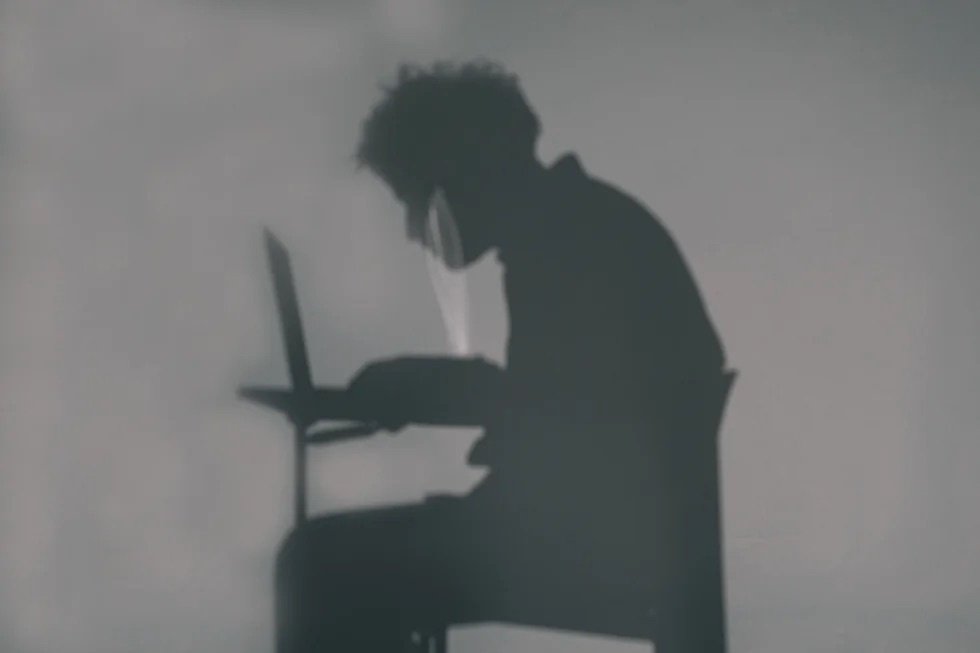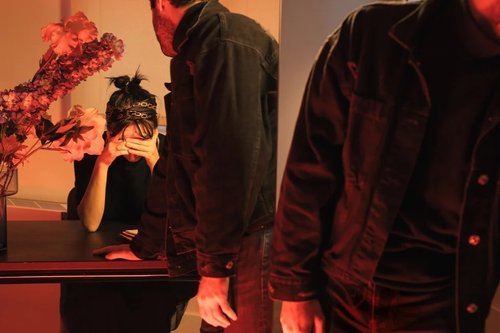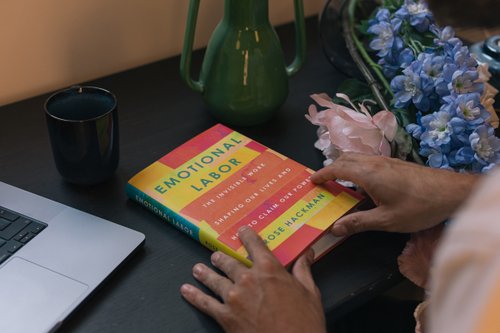Summertime sadness: Coping with seasonal affective disorder
Jul 22, 2024
6 mins

JB
Writer, translator and journalist
For many, the summer months are filled with joy and happiness. A time for making treasured memories outdoors, going on vacation with your friends, enjoying barbecues with your family, and taking trips to the beach. Yes, summer can certainly bring with it a renewed zest for life, but for certain people, it couldn’t end quicker.
By now, many of us have heard of SAD (seasonal affective disorder), which can cause a person’s mood to drop over the winter months due to a lack of light. However, most people are unaware that it has a lesser known, but just as serious, cousin: summer SAD.
What is summer SAD?
“Folks with winter-type SAD are slowed down, lethargic, like ‘hibernating bears’, but with summer type, people are agitated, irritable and they don’t sleep as well,” says Dr. Norman Rosenthal, psychiatrist and author of the book Defeating SAD.
As one of the first people to describe and name SAD back in 1984, Rosenthal is one of the world’s leading voices on the disorder. He explains that although the summer variety hasn’t been studied for that long, it’s becoming “more common and more prevalent” due to global heating. “The summer type has become more problematic,” he warns.
It isn’t just a matter of prevalence though, it’s also dangerous. “Clinically, the summer set are more at risk of suicide,” Rosenthal explains. This is because “when you agitate depression, it becomes more of a dangerous situation.” So, summer SAD is certainly a disorder that needs to be taken seriously. Fortunately, there are effective treatments to help people cope during the summer months. In part though, this relies on identifying the cause.
Like burnout, depression or anxiety, SAD can manifest in the workplace. So, where does it stem from, and more importantly, how can you cope with it?
What’s behind it?
It has long been known that winter-type SAD is caused by an underexposure to light due to shorter days and reduced daylight. However, when it comes to the summer type, the causes are somewhat more varied and diverse. “There is a lack of research, and we need to study this systematically,” admits Dr. Teodor T. Postolache, professor of psychiatry at the University of Maryland School of Medicine. Still, there is a general consensus on the main causes.
Heat
With thermometers rising over the summer months, people become more sensitive to excessive heat, which affects their mood. It is for this reason that with global heating and more extreme heatwaves, there will most likely be a higher prevalence of this form of SAD.
Allergies
There is an increasing body of evidence showing the link between hay fever and poor mental health. “Some people have pronounced allergy symptoms, which for some are characterized by fatigue, while for others symptoms associated with depression such as sadness, hopelessness, low self-esteem and sleep impairment,” Postolache says.
Light
“In the summer, excess light agitates people,” says Rosenthal, who recounts a patient describing this as a “knife cutting through them.” However, interestingly, Postolache also describes instances of people experiencing similar symptoms to Winter SAD after “isolating themselves indoors with the blinds down” as a way of seeking refuge from the heat.
Social pressure
Just like people experience the holiday blues at Christmas, similar forces can come into play over the summer months and compound SAD. “You may see everyone having a great time during the summer and you somehow cannot match that. This particular contrast makes things worse,” says Postolache. He admits that this probably gets magnified through social media. For example, how our feeds can become awash with athletic bodies at the beach over the summer months - and our lives and our bodies don’t match up. Postolache stresses that the summer blues may not induce full depression, but can definitely make people feel low.
SAD in the workplace
For anyone living with summer-type SAD, working and holding down a job can become more challenging. Rosenthal believes that this can be greatly influenced by the type of job someone does and where they work. “If someone works for the park service and has to go and check on various things outdoors, there could be a huge influence,” he says. “If they can work from their homes and turn the temperatures down, then working will be easier.”
As for the impact on a person’s ability to work, Postolache says that this is synonymous with the usual traits of depression. “When depressed, you have less motivation, less energy, less interest in your work and less capacity to be a team player,” he says.
What’s more, as summer SAD can cause sleep impairment, it can affect job performance in terms of cognition. “You may become more impulsive. For example, you may send that email to your boss without thinking. You may have a shorter fuse and send an email to a client that you later regret,” Postolache adds. It can also have a negative impact on procrastination and your sequencing abilities.
Likewise, summer SAD can lead to a rise in presenteeism: when workers are physically present but not actually productive. This is not surprising as recent studies showed that 42% of workers have soldiered on, rather than taking time off, regardless of their mental health, and that employees with symptoms of depression exhibit presenteeism during 17.5% of the working day.
“With presenteeism, you’re not feeling good, but you still go to work and can ultimately mess up due to a diminished job performance. Or, you might be in a meeting but not actually participating,” Postolache explains. Furthermore, as with depression, it can also lead to a spike in absenteeism.
Learning to cope
If you do find yourself repeatedly struggling with your mental health over the summer months, there is support and treatment to help you cope. Postolache says that if you believe you are suffering from summer SAD, you should always see a primary care physician first to rule out any other underlying physical conditions. “For example, you could have a thyroid disturbance, which can lead to you being more sensitive to heat – this is just one example,” he says.
The next step is then to understand, ideally with a mental health professional, about how these symptoms are occurring. “It’s important to diagnose this as really being summer after summer,” Postolache explains, “and also to evaluate the severity of the depression as well as attempting to identify treatable conditions that may cause or mimic depression.”
Postolache points to the complicated nature of pinpointing mental illness. For example, a person may actually be experiencing an anniversary of grief following the recent death of a loved-one, which just happens to coincide with the summer. However, he stresses that “many people with summer SAD will tell you they’ve had difficulty with summer since high school. For example, they may love soccer but just could never play in the summer because they suddenly became disinterested and deenergized.”
As for treating summer SAD, there are ways of improving symptoms, but it depends on what is causing it. For people who are triggered by excessive heat, Postolache says that anecdotal evidence and his own clinical experience has shown that people’s symptoms can improve after being exposed to cold and keeping cool. In the office, this could mean sitting near a fan, turning on the air conditioning, or even using a cold pack at your desk.
If you’re working from home, Postolache advises putting alarms on your cell phone to take a five-minute cold shower every two-to-four hours while awake. “There are people who clearly improve with exposure to cold. You can see how their mood gets relatively and quickly restored,” Postolache says. However, he also stresses the importance of ruling out other co-occurring conditions as some of these can be exacerbated when exposed to cold water: “for example, some people may find their fingers freeze up and they can’t type properly.”
On the other hand, if your summer SAD is being caused by an allergy to pollen, Postolache says primary care physicians and allergists are well equipped to deal with this. However, he’s keen to add that he’s observed – albeit anecdotally – that some people can see greater mood improvement when treated with intranasal corticosteroids than with antihistamines. This is because the latter can “add a level of fatigue or cognitive cloudiness”, which the sufferer may already be experiencing through SAD.
Finally, if it’s an excess of light that’s causing SAD, Rosenthal says that they should aim to reduce their exposure to it, which could mean keeping your shades down at home.
Ultimately, addressing summer SAD is a question of identifying what’s causing the distress and taking it seriously. As Rosenthal recounts, “SAD wasn’t always recognized as an entity and wasn’t taken seriously. Some people would even joke about the idea that light could cause symptoms.” The latter would often lead Rosenthal to being on the receiving end of ridicule. Yet, as he explains, attempts to identify the cause of mental distress should always be encouraged.
“If the summer days come along and you feel bad, check the weather, check the temperature, check [everything]!” Being alert and aware of these seasonal changes just might make the summertime a little more bearable.
Photo: Welcome to the Jungle
Follow Welcome to the Jungle on Facebook, LinkedIn, and Instagram and subscribe to our newsletter to get our latest articles every week!

More inspiration: Mental health

‘We need each other’: Monika Jiang on combating loneliness in hybrid work
Hybrid work offers flexibility but can leave us feeling disconnected. Monika Jiang explores how we can rebuild workplace connections.
Dec 19, 2024

Struggling at work? Here are 3 steps to rebuilding your self-esteem
Low on confidence? Learn how reflection, recharging, and refocusing can help you rebuild self-esteem and thrive professionally.
Nov 27, 2024

10 ways to beat the Sunday Scaries
Even people who love their jobs can experience the Sunday Scaries. Psychologist Karen Doll offers several strategies to help manage and overcome it.
Sep 12, 2024

Unpacking the burden of emotional labor
Rose Hackman’s "Emotional Labor" reveals how managing emotions impacts everyone, especially women and minorities.
Aug 08, 2024

Is financial anxiety harming your productivity?
Feeling overwhelmed by financial anxiety? You're not alone. Discover practical steps and expert advice to regain control of your work-life balance.
Jul 31, 2024
The newsletter that does the job
Want to keep up with the latest articles? Twice a week you can receive stories, jobs, and tips in your inbox.

Looking for your next job?
Over 200,000 people have found a job with Welcome to the Jungle.
Explore jobs